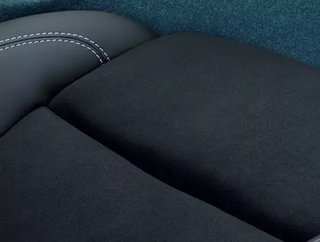How will Volvo manufacture more sustainable cars?

Volvo is taking its sustainability commitment a few steps further, with some exciting new developments in its electric vehicle (EV) range. The Swedish carmaker has been present in the EV industry for a couple of years now and its new product features target ethical and environmental issues.
Building vehicles from sustainable materials
The majority of carmakers will use real leather to furnish the interiors of their vehicles, but with ethical concerns around sourcing the material, the automotive manufacturer Volvo has committed to sourcing a more sustainable alternative for its new range of electric vehicles, as part of its 2030 goal to make all of its new cars leather-free.
‘Being a progressive car maker means we need to address all areas of sustainability, not just CO2 emissions’, says Stuart Templar, Director of Global Sustainability at Volvo Cars. ‘Responsible sourcing is an important part of that work, including respect for animal welfare. Going leather-free inside our pure electric cars is a good next step towards addressing this issue’.
Volvo will surely open up new opportunities as it appeals to a wider audience with a more ethical stance on vehicle manufacturing. ‘Finding products and materials that support animal welfare will be challenging, but that is no reason to avoid this important issue’, says Stuart Templar. ‘This is a journey worth taking. Having a truly progressive and sustainable mindset means we need to ask ourselves difficult questions and actively try and find answers’.
Why consider ethics in carmaking?
Alongside the company’s announcement of leather-free production, it has released a report, which coincides with this commitment and the launch of its C40 Recharge model. Volvo’s research concludes that around two-thirds of consumers take into consideration the environmental status of the car company they use. Ultimately, consumers are becoming more conscious of how vehicles are made: where the materials are sourced, the energy used in manufacturing cars, and the energy-saving capabilities of those vehicles.
Robin Page, Senior Vice President of Design at Volvo Cars, says, ‘We have a vision of where we need to go in the future, with the first step to ensure we harness sustainable, natural and recycled materials. [...] The next challenge is to change what we do with these materials, whether that’s making car parts that last forever, re-enter the circular economy or go back into the earth’.
‘Conscious design can fundamentally transform our society and it’s integral that brands harness the opportunities on offer’, says Martin Raymond, Co-Founder of The Future Laboratory. ‘Conscious design is showing a way forward and could transform the world in the process’.
For more information on Volvo’s efforts to build sustainable EVs, check out The rise of conscious design: a report about tomorrow’s materials.






